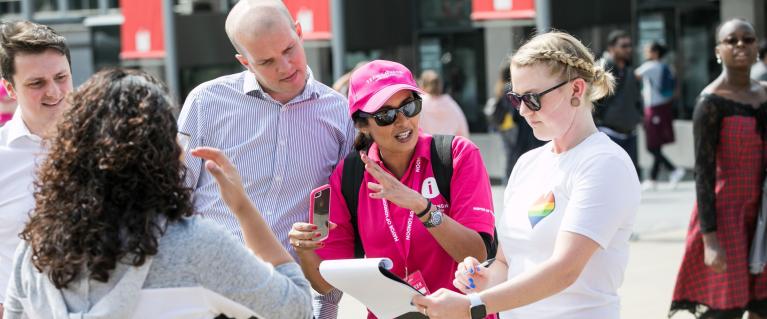
Changes to the Team London Volunteering Website - Frequently Asked Questions (FAQs)
We are very excited to be supporting Simply Volunteer London, a new site connecting volunteers and volunteering opportunities across London. This will replace the Team London Volunteering website from Friday 15 March 2024. Here is everything you need to know.
Frequently Asked Questions
Simply Volunteer London is a new volunteer brokerage site for London that has been developed by Simply Connect in consultation with volunteering organisations, volunteers and with the support of the Mayor of London.
Simply Volunteer London builds on the legacy of the Team London Volunteering website and will replace the Team London site. The Team London Volunteering website will cease to operate on 15th March 2024
No, Simply Volunteer London is a brand-new site and will be operated by Simply Connect and not the Greater London Authority. We do not have the data permissions to transfer your account over, so please register your details with Simply Volunteer London directly to access volunteering opportunities.
No. We recommend you copy and save any text that you have held in your organisation profile and volunteering opportunities for use on the new site, should you need to. Once the site is closed there will be no access to any of the historic records.
Team London Volunteering is operated by the Greater London Authority (GLA). We value your data privacy and the GLA will retain your data in accordance with GDPR and its retention policy. We will delete and destroy your data within two years of the Team London Volunteering website closure.
No, Simply Volunteer London will be operated by Simply Connect. Simply Connect is an independent organisation that was funded by the Mayor of London to create a new volunteering platform for London. Simply Volunteer London will be operated and maintained entirely independently of the Greater London Authority.
Simply Connect boasts a ten-year legacy of working collaboratively with volunteer centres and civil society organisations nationally. They are currently active across 14 boroughs in London providing online services connecting people with volunteering opportunities.
The Mayor of London recognises the importance of the contributions individual volunteers and civil society organisations make to the lives of Londoners. We are proud that we supported volunteering in London through the Team London Volunteering website. We have a strong volunteering sector in London and believe these frontline organisations are best placed to champion and promote volunteering.
By supporting Simply Volunteer London to continue the work they have been doing over the last ten years we can together build an even greater resource to be run by this sector-leading organisation. Simply Volunteer London works directly with locally based volunteer centres and will build on the success of the Team London Volunteering website.
The website will make it easier for organisations to reach volunteers across London and for volunteers to have a greater overview of opportunities available to them across the capital.
No, the change does not affect the wider work of the Team London volunteers and their role in supporting major events that take place across the capital. If you are a signed up to be a Major Events volunteer with the Mayor of London, you will continue to receive updates on upcoming volunteering opportunities. For more information please visit: Become a Major Event volunteer.
These changes will only affect the Team London Volunteering website that connects Londoners with volunteering opportunities offered by charities and community groups.
The Simply Volunteer London site will enable you to continue to find out about volunteering opportunities across London. You will be able to search by location or see opportunities that are London wide, and you will be made aware of calls for volunteers to support special events, targeted volunteering, as well as other wider volunteering opportunities.
Need a document on this page in an accessible format?
If you use assistive technology (such as a screen reader) and need a version of a PDF or other document on this page in a more accessible format, please get in touch via our online form and tell us which format you need.
It will also help us if you tell us which assistive technology you use. We’ll consider your request and get back to you in 5 working days.